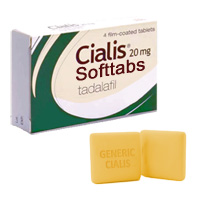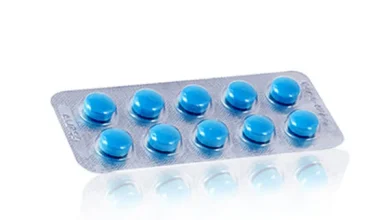Understanding and Addressing Common Skin Concerns: A Comprehensive Guide to Achieving Radiant Skin
Navigating Common Skin Concerns for Healthier Skin

Introduction
In today’s fast-paced world, skin concerns have become a prevalent issue, affecting individuals of all ages and backgrounds. From acne and wrinkles to dryness and hyperpigmentation, these concerns can significantly impact both our appearance and self-esteem. Understanding these common skin issues and knowing how to address them is crucial for maintaining healthy and radiant skin.
This guide delves into various skin concerns, exploring their causes, effective treatments, and preventive measures. Whether you’re battling stubborn acne or seeking ways to manage premature aging, this comprehensive post will equip you with the knowledge needed to tackle your skin concerns head-on. Let’s embark on a journey to healthier, more glowing skin!
1. Acne: Causes, Treatments, and Prevention
1.1 What is Acne?
Acne is a common skin condition that affects the hair follicles and sebaceous glands, leading to the formation of pimples, blackheads, and cysts. It typically occurs on the face, back, and shoulders, where oil glands are most active.
1.2 Causes of Acne
Several factors contribute to the development of acne:
- Hormonal Changes: Fluctuations in hormones, especially during puberty, menstruation, and pregnancy, can trigger acne.
- Excess Oil Production: Overactive sebaceous glands produce more oil, which can clog pores and lead to acne.
- Bacteria: The bacteria Propionibacterium acnes can infect clogged pores, causing inflammation and pimples.
- Diet: Certain foods, such as those high in sugar and dairy, may exacerbate acne in some individuals.
- Stress: Stress can increase oil production and worsen acne.
1.3 Effective Treatments for Acne
- Topical Treatments: Over-the-counter products containing benzoyl peroxide, salicylic acid, and retinoids can help reduce acne.
- Oral Medications: Prescription medications like antibiotics and oral contraceptives can be effective for more severe cases.
- Professional Treatments: Chemical peels, laser therapy, and extraction procedures performed by dermatologists can help manage persistent acne.
1.4 Prevention Strategies
- Maintain a Clean Skin Care Routine: Cleanse your skin twice daily with a gentle cleanser to remove excess oil and impurities.
- Avoid Touching Your Face: Touching your face can transfer bacteria and oils, leading to breakouts.
- Use Non-Comedogenic Products: Opt for makeup and skincare products that don’t clog pores.
2. Wrinkles and Fine Lines: Causes and Solutions
2.1 Understanding Wrinkles and Fine Lines
Wrinkles and fine lines are natural signs of aging. They typically appear as creases or folds in the skin, particularly around the eyes, mouth, and forehead.
2.2 Causes of Wrinkles and Fine Lines
- Aging: As we age, the skin loses collagen and elastin, resulting in reduced elasticity and firmness.
- Sun Exposure: Prolonged exposure to UV rays can break down collagen and elastin, accelerating wrinkle formation.
- Repetitive Movements: Frequent facial expressions, such as squinting or frowning, can lead to the development of fine lines.
- Smoking: Smoking can damage collagen and reduce blood flow to the skin, contributing to premature aging.
2.3 Effective Treatments for Wrinkles
- Topical Retinoids: Retinoids, such as retinol and tretinoin, can stimulate collagen production and reduce the appearance of wrinkles.
- Hyaluronic Acid: Products containing hyaluronic acid can help plump the skin and smooth out fine lines.
- Botox and Fillers: Injectable treatments like Botox and dermal fillers can temporarily reduce the appearance of wrinkles.
2.4 Prevention and Maintenance
- Sun Protection: Use a broad-spectrum sunscreen with SPF 30 or higher daily to protect your skin from UV damage.
- Moisturize Regularly: Keep your skin hydrated with a good moisturizer to maintain elasticity.
- Healthy Lifestyle: Maintain a balanced diet, stay hydrated, and avoid smoking to support skin health.
3. Dry Skin: Identification and Treatment
3.1 What is Dry Skin?
Dry skin, or xerosis, is characterized by a lack of moisture, leading to flakiness, itching, and rough texture.
3.2 Causes of Dry Skin
- Environmental Factors: Cold weather, low humidity, and hot showers can strip the skin of natural oils.
- Skin Conditions: Conditions like eczema and psoriasis can cause dryness.
- Harsh Products: Using products with strong chemicals or alcohol can irritate and dry out the skin.
3.3 Effective Treatments for Dry Skin
- Hydrating Moisturizers: Choose thick, emollient-rich creams or ointments to lock in moisture.
- Humidifiers: Use a humidifier to add moisture to the air, especially in dry or heated environments.
- Gentle Cleansers: Opt for non-foaming, hydrating cleansers that don’t strip away natural oils.
3.4 Prevention Tips
- Limit Hot Showers: Take lukewarm showers to prevent stripping the skin of its natural oils.
- Avoid Harsh Products: Use gentle, fragrance-free skincare products to minimize irritation.
- Stay Hydrated: Drink plenty of water to keep your skin hydrated from within.
4. Hyperpigmentation: Understanding and Managing Dark Spots
4.1 What is Hyperpigmentation?
Hyperpigmentation refers to the darkening of certain areas of the skin due to an overproduction of melanin. Common types include sun spots, age spots, and melasma.
4.2 Causes of Hyperpigmentation
- Sun Exposure: UV rays stimulate melanin production, leading to dark spots.
- Hormonal Changes: Conditions like melasma can cause pigmentation changes due to hormonal fluctuations.
- Inflammation: Post-inflammatory hyperpigmentation can occur after an injury or acne breakout.
4.3 Effective Treatments for Hyperpigmentation
- Vitamin C: Topical vitamin C can brighten the skin and reduce dark spots.
- Hydroquinone: This prescription ingredient helps lighten hyperpigmented areas.
- Chemical Peels: Peels containing glycolic acid or salicylic acid can exfoliate the skin and reduce pigmentation.
4.4 Preventive Measures
- Sun Protection: Wear sunscreen daily and avoid excessive sun exposure.
- Avoid Picking: Resist the urge to pick at blemishes to prevent post-inflammatory pigmentation.
- Use Brightening Products: Incorporate products with ingredients like niacinamide and alpha arbutin into your routine.
5. Sensitive Skin: Identifying and Managing Irritations
5.1 What is Sensitive Skin?
Sensitive skin is characterized by heightened reactivity to external factors, leading to redness, itching, and irritation.
5.2 Causes of Sensitive Skin
- Genetics: Some individuals are genetically predisposed to sensitive skin.
- Environmental Factors: Extreme temperatures, pollution, and allergens can trigger sensitivity.
- Product Ingredients: Fragrances, alcohol, and harsh chemicals can irritate sensitive skin.
5.3 Effective Treatments for Sensitive Skin
- Soothing Products: Use products with calming ingredients like chamomile, aloe vera, and calendula.
- Patch Testing: Always perform a patch test before introducing new products to your skincare routine.
- Minimalist Approach: Stick to a simple skincare regimen with fewer, well-tolerated products.
5.4 Prevention Tips
- Avoid Triggers: Identify and avoid products or environmental factors that irritate your skin.
- Choose Hypoallergenic Products: Opt for skincare products labeled as hypoallergenic and fragrance-free.
- Maintain a Balanced Diet: A diet rich in antioxidants can support skin health and resilience.
6. The Role of a Professional Dermatologist
6.1 When to Consult a Dermatologist
For persistent or severe skin concerns, consulting a dermatologist is essential. They can provide personalized treatment plans and advanced procedures to address specific issues.
6.2 What to Expect During a Dermatology Consultation
- Assessment: The dermatologist will evaluate your skin and discuss your concerns.
- Diagnosis: They may diagnose underlying conditions or assess the severity of your skin issues.
- Treatment Plan: Based on your needs, the dermatologist will recommend appropriate treatments and lifestyle adjustments.
Conclusion
Addressing skin concerns effectively requires a combination of understanding the underlying causes, implementing appropriate treatments, and adopting preventive measures. Whether you’re dealing with acne, wrinkles, dry skin, hyperpigmentation, or sensitive skin, the right approach can lead to healthier and more radiant skin.
By staying informed and proactive, you can manage your skin concerns and achieve the glowing complexion you desire. Remember, healthy skin is a reflection of overall well-being, so prioritize your skincare routine and seek professional advice when needed.
Call-to-Action: If you have specific skin concerns or need personalized advice, consider consulting a dermatologist to develop a tailored skincare plan. For more tips and information on maintaining healthy skin, subscribe to our newsletter or follow our blog for regular updates.



